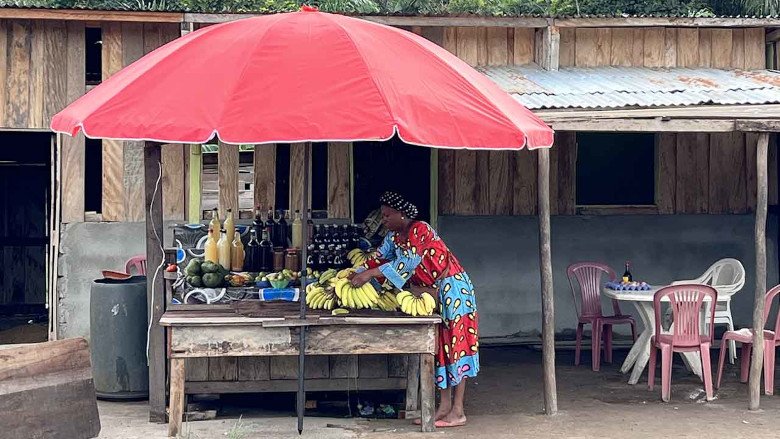WASHINGTON, November 22, 2022 – The World Bank Group Board of Executive Directors today discussed the new Country Partnership Framework (CPF) for Gabon for FY2023 to 2027 to support the country’s post-pandemic transition towards sustainable and inclusive economic growth.
The CPF’s strategic focus will be to support Gabon’s efforts to create jobs for its young and largely urbanized population as the country accelerates efforts to diversify its economy away from oil.
As Africa’s 5th largest oil producer, Gabon’s economic recovery is gathering pace due to the lifting of Covid-19 restrictions and continuing rise in oil prices. However, pandemic restrictions have exacerbated already-high unemployment, which stands at 22%, with youth unemployment even higher, at 38%. While poverty is decreasing slightly, food insecurity is rising. Although the country has adopted a series of reforms to give women more rights in the home and at work, and some advances were made on economic diversification in the last decade, more sustained efforts are needed to reduce poverty and improve shared prosperity.
“Gabon has vast natural resources, including declining oil reserves, and the key promises going forward will be to build human, institutional and physical capital so to create new drivers of sustainable and resilient growth, thus improving equal access to opportunity for all,” said Abdoulaye Seck, World Bank’s Country Director for Gabon, Cameroon, the Central African Republic, Equatorial Guinea, and the Republic of Congo.
Economic diversification efforts can also help climate-proof Gabon’s economy and protect its people from the negative impacts of climate change. With 70% of the country’s population living in coastal areas and highly vulnerable to rising sea levels, the development of a blue and green economy would help reduce climate risks, halt the loss of natural capital and the country’s rich biodiversity, and help Gabon meet its commitments on reducing greenhouse gas emissions.
“Gabon can leverage its immense growth potential in forestry, ecotourism, green energy and agribusiness to propel its development. The private sector has a key role to play to help Gabon diversify its economy and create more jobs and opportunities for its people,” said Sylvain Kakou, IFC’s Country Manager for Gabon, Cameroon, Central African Republic, Chad, Equatorial Guinea, and Sao Tome and Principe.
Under the new CPF, the World Bank Group’s engagement will be highly selective, to maximize the effectiveness of the Group’s resources for Gabon. The CPF will focus on the following areas:
- A strong public service delivery system: Gabon has made considerable progress on digital transformation and broadband connectivity. Also, to improve service delivery, the Bank will continue supporting digitization of key public services through the Digital Gabon project. This will contribute to delivery of more efficient and quality public services, improving public sector accountability and transparency
- Increased access to social services: More investments will be made to boost access to electricity, water and sanitation in underserved neighborhoods, and to expand social protection to the most vulnerable. Well-designed and targeted safety net systems can help reduce unemployment and increase labor productivity.
- Improved resilient urban infrastructure: With one of the highest urbanization rates in Africa, Gabon needs to promote integrated urban development. This means better urban planning, improving roads and local transport, and greater access to greener and more resilient infrastructure in underserved neighborhoods.
- Increased private investment in non-oil sectors: To diversify the economy and improve the investment climate, the World Bank, together with IFC and the Multilateral Investment Guarantee Agency (MIGA), will promote blue and green jobs in key sectors such as fisheries, forestry and ecotourism. This will involve continued support to the Kinguele Aval hydro project and the upgrading of the Transgabonais railway.
Currently, the World Bank has an on-going portfolio of seven operations in Gabon and two regional projects for a total amount of more than $327 million; IFC’s committed portfolio is over $107 million and MIGA is supporting three projects with a total gross exposure of around $58 million.

